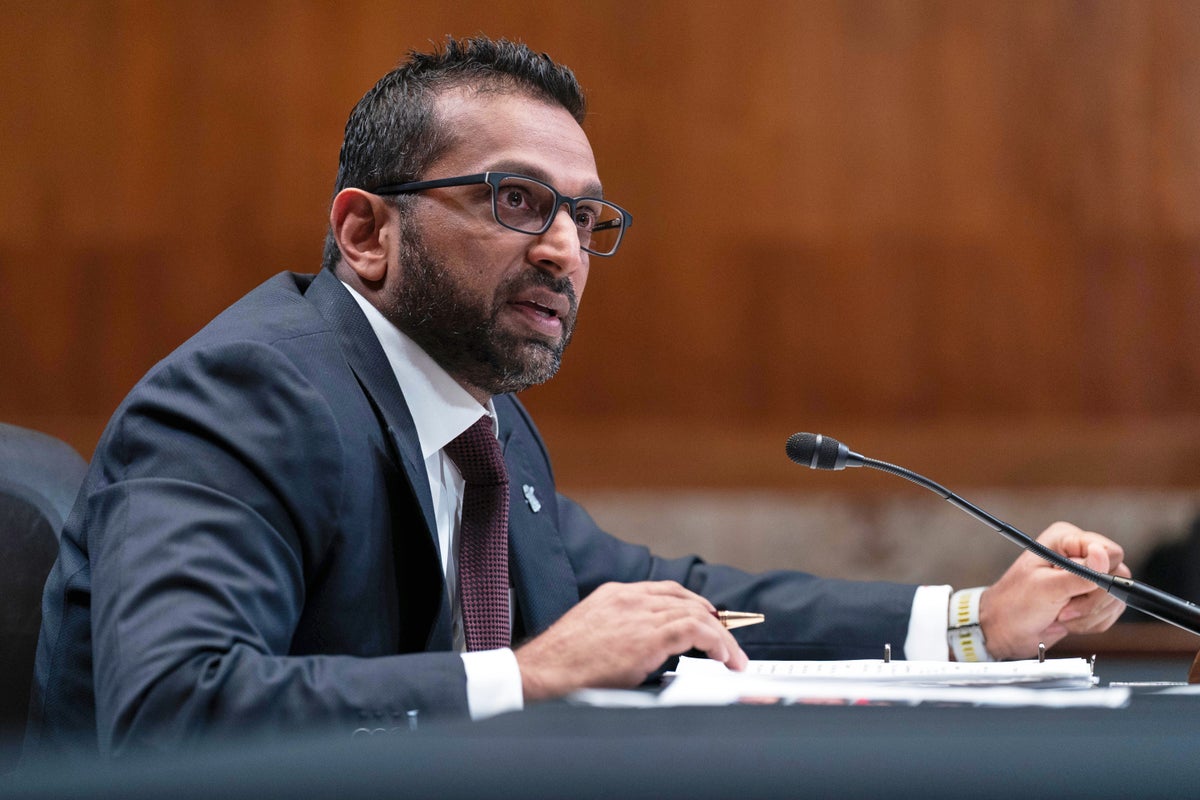Earlier this month, the Trump administration scored seemingly positive headlines when it asked a federal court to dismiss a case brought by three Republican states seeking to restrict telehealth access to mifepristone, the first of two drugs used in a medication abortion.
Several news outlets claimed in headlines that the administration would “defend” access to the pills, despite the fact that Project 2025 and several of Trump’s top appointees have made it clear that they believe access to mifepristone—which, along with the second drug, misoprostol, now account for more than 60 percent of all abortions that occur nationwide—should be drastically rolled back, as I have previously reported. In reality, the administration merely argued the states do not have standing to sue and did not weigh in on the underlying issue of access to the pills.
But on Wednesday, Health and Human Services (HHS) Secretary Robert F. Kennedy, Jr. made clear that the administration is not seeking to “defend” mifepristone; in fact, they could very well become responsible for decimating access to it nationwide—even though more than 100 scientific studies have proven they are safe and effective, including when they are prescribed virtually and mailed to patients.
While testifying before the Senate Committee on Health, Education, Labor and Pensions (HELP) about the HHS budget, Kennedy told anti-abortion stalwart Sen. Josh Hawley (R-Mo.) that he has asked Food and Drug Administration Commissioner Dr. Martin Makary to “do a complete review” on mifepristone following a report from an anti-abortion group that purports to show dangers from the pill. But there’s a problem with that report: Experts say it’s pretty much bogus.
The report—entitled “The Abortion Pill Harms Women”—was published last month by the Ethics and Public Policy Center (EPPC), a right-wing organization that was on the advisory board of Project 2025. It claims that nearly 11 percent of women experience a “serious adverse event” within 45 days of taking mifepristone for an abortion—a much higher percentage than numerous other studies that show less than one percent of people have serious complications—and urges the FDA to reinstate more stringent protocols for accessing it and ultimately “reconsider its approval altogether.”
Experts have pointed out major flaws with the report’s alleged findings. As the Society of Family Planning (SFP), a nonprofit research and advocacy organization that supports abortion rights, noted in a May 2 letter to Makary, the FDA director, the report is not peer-reviewed (the EPPC claims the peer review process “is terribly biased against conservatives”); fails to reveal the database the authors relied on; lacks a standardized definition of “hemorrhage,” making it difficult to know if the report is characterizing normal post-abortion bleeding as a “serious adverse event”; and wrongly classifies emergency room visits and subsequent treatment to complete an abortion as “serious adverse events,” despite the fact that the FDA’s own guidance says emergency room visits alone should not be classified as such, and that research shows people go to ERs after taking abortion pills for various reasons, including to ask questions about symptoms and to confirm they are no longer pregnant. “In short, this paper is not a methodologically rigorous, evidence-based resource, and does not warrant consideration, particularly in scientific spaces,” the letter states. “We urge the FDA to dismiss the paper—and all claims inconsistent with strong scientific standards—as irrelevant to its regulatory decision-making.”
Politico also reported that even Dr. Christina Francis, the CEO of the American Association of Pro-Life OBGYNs, warned on a private Zoom call with anti-abortion leaders that the report is “not a study in the traditional sense” and “not conclusive proof of anything.” If all this was not enough, the paper’s two co-authors are openly anti-abortion. One recently co-authored a book called “Tearing Us Apart: How Abortion Harms Everything and Solves Nothing.”
Nonetheless, when Hawley, who recently introduced a bill seeking to roll back access to abortion pills, asked Kennedy at the hearing if he would review access to mifepristone as a result of the new report, Kennedy said, “At very least the label [for mifepristone] should be changed.” Kennedy further added that he asked Makary “to do a complete review” of mifepristone and that he “will make a recommendation” about whether, and how, policies around access to mifepristone should be changed. “I feel that that the policy changes will ultimately go through the White House,” Kennedy said.
What exactly that means is unclear. Back in December, Trump told TIME Magazine that it was “very unlikely” the FDA would do anything to further restrict access to abortion pills. In August, while he was campaigning, Trump told CBS News he would not enforce the Comstock Act to prohibit the mailing of abortion pills.
Mary Ziegler, a scholar of reproductive rights law, said that Kennedy’s comment should be interpreted as sending a message to Hawley more than anything else. “‘This is going to go through the White House’ is a way of saying to Josh Hawley, ‘This is not going to happen through your little bill, we don’t want this to happen through the courts…the president wants to control if, whether, and how there are restrictions on mifepristone,’” she told me by phone on Thursday afternoon.
Despite Trump’s promises, the fact that the administration is going to review access to mifepristone is not exactly surprising, given that Project 2025 recommended the administration enforce the 19th-century Comstock Act to ban the mailing of abortion pills. As my colleague Madison Pauly and I reported back in January, anti-abortion groups sent a pair of letters to the heads of the Department of Justice and FDA requesting they roll back access to the pills by enforcing the Comstock Act and restoring old rule on accessing the pills, including requiring they be distributed in-person rather than by telehealth, which the Biden administration began permanently allowing in December 2021. (Now, medication abortions provided via telehealth account for around 20 percent of all abortions, according to SFP data.)
At his March confirmation hearing, Makary—who has a long history of anti-abortion views—said that while he had “no preconceived plans to make changes to the mifepristone policy,” he would also “review the totality of data and ongoing data,” adding that he knows of “OB doctors who prefer to insist…that mifepristone be taken, when necessary, in their office, as they observe the person taking it. And I think their concern there is if the drug is in the wrong hands, it could be used for coercion.” (The implication that the pills could be taken to facilitate reproductive coercion is also not supported by evidence, as I have reported.)
Reproductive rights advocates blasted Kennedy’s latest comments as proof that the administration is prioritizing politics over evidence when it comes to abortion pills.
“This call for a review is part of a coordinated campaign by the anti-abortion movement, not a response to science or public health,” said Katie O’Connor, senior director of federal abortion policy at the National Women’s Law Center.
Liz Wagner, senior federal policy counsel at the Center for Reproductive Rights, said the Trump administration “is weaponizing the FDA to push an anti-abortion political agenda advanced by the architects of Project 2025. Any new restrictions on mifepristone would not only be medically unnecessary and unjustified, but would be a substantial barrier to abortion care amidst an ongoing public health crisis.”
Amy Friedrich-Karnik, director of federal policy at the Guttmacher Institute, said in a statement: “While it’s shocking that the FDA would investigate mifepristone based on shoddy research, it’s even more stunning that Secretary Kennedy embraced, rather than rejected, the notion of political interference in scientific and medical decisions that impact the health and safety of Americans.”
“We should all be scared if our access to safe, FDA-approved medications turns on President Trump’s gut instinct rather than credible scientific evidence,” Julia Kaye, senior staff attorney for the Reproductive Freedom Project at the ACLU, said in a statement. “If the FDA moves forward with this politically motivated review, that is a dangerous sign that the president is going back on his promises to voters not to restrict abortion access even further.”
Spokespeople for the White House, Hawley, and the EPPC did not immediately respond to questions about the administration’s plans for mifepristone or criticisms about the report Hawley cited. A spokesperson for HHS ignored my questions and pointed me to the comments Kennedy made at the hearing.
As I pointed out yesterday, the irony of all this is that it comes during National Women’s Health Week, which the White House acknowledged on Monday, claiming, “We promote and support the health and well-being of our Nation’s mothers, daughters, sisters, wives, and friends.” Since then, Republicans have “celebrated” by trying to gut Medicaid funding for Planned Parenthood—which would impede access to pap smears, birth control access, and cancer screenings, since Medicaid already does not fund most abortions due to the Hyde Amendment—and, as Kennedy proved yesterday, seemingly getting one step closer to decimating abortion access nationwide.















